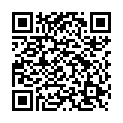|
|
|
| Module code: IPS.TEC2c |
|
2PA (2 hours per week) |
|
2,5 |
| Semester: 1 |
| Mandatory course: no |
Language of instruction:
English |
Assessment:
Project presentation and documentation
[updated 03.04.2020]
|
EPS.TEC2c (P231-0159) European Project Semester, Bachelor, ASPO 01.10.2024
, semester 1, optional course
IPS.TEC2c International Project Semester, Bachelor, ASPO 01.10.2020
, semester 1, optional course
Suitable for exchange students (learning agreement)
|
30 class hours (= 22.5 clock hours) over a 15-week period.
The total student study time is 75 hours (equivalent to 2.5 ECTS credits).
There are therefore 52.5 hours available for class preparation and follow-up work and exam preparation.
|
Recommended prerequisites (modules):
None.
|
Recommended knowledge:
TEC1: Introduction to Arduino
[updated 03.04.2020]
|
Recommended as prerequisite for:
|
Module coordinator:
Prof. Dr. Martin Löffler-Mang |
Lecturer:
Prof. Dr. Martin Löffler-Mang
[updated 01.07.2022]
|
Learning outcomes:
After successfully completing the course, the students master the connection of standard sensors to a commercially available microcontroller (preferably Arduino). In addition, the students learned to carry out a small project. They are familiar with the brainstorming process for idea finding, can plan resources, divide up their project working hours and ultimately bill the project costs. They are able to work together in international and interdisciplinary teams, solve minor conflicts themselves, present their own project results and document them in writing.
[updated 03.04.2020]
|
Module content:
The sensor applications are selected by the students themselves ("Students design teaching") and implemented on their own responsibility. Typical example projects from the past were: anti-gravity, ultrasonic levitation, hand fly remote, LED hourglass, robot snake, smart parking (all 2020);
Car tracking, self-righting vehicle, earthquake simulator, goal celebrations, Lissajous figures, chicken guard (2019);
Sonic Vision, autofocus, ball throwing robot, ball sorting, vibration damper, Top Sonic, Dancing Steel (2018).
[updated 03.04.2020]
|
Teaching methods/Media:
The students go through a moderated process in teams of 3-5 people:
1. Brainstorming to develop your own sensor application
2. Evaluation of the best ideas
3. Resource and cost estimation, schedule
4. Brief presentation in the plenum with assignment
5. Working phase with mentoring
[updated 03.04.2020]
|
Additional information:
Ideally, the teams are multinational and interdisciplinary.
[updated 03.04.2020]
|
Recommended or required reading:
Hering, Martin, Storer: Physik für Ingenieure
Löffler-Mang: Optische Sensoren
Kneip: Introduction to Arduino
[updated 03.04.2020]
|

